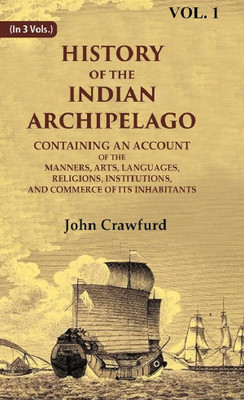History of the Indian Archipelago: Containing an Account of the Manners, Art, Languages, Religions, Institutions, and Commerce of 1st(Paperback, John Crawfurd)
Quick Overview
Product Price Comparison
About The Book: Presented in three volumes, this book extensively explores the rich history of the Indian Archipelago, shedding light on the customs, art, languages, religions, institutions, and commerce of its diverse population. Comparable in exploration timing to America, the Archipelago stands as a vast and strategically positioned region, encompassing a intricate network of islands spanning 40 degrees of longitude and 30 degrees of latitude. As the largest island group globally, it has played a crucial role in global maritime routes, serving as a nexus connecting Asia, Europe, and America. The Archipelago is categorized into distinct natural classes, each featuring diverse climates, ecosystems, and civilizations, ranging from the highly developed western region to the distinctive attributes of the Philippines in the east. The narrative accentuates the geographical advantages, diverse ecosystems, and the historical impact of larger islands on their smaller counterparts, shaping both population and civilization. The unique maritime environment of the Archipelago is defined by intricate navigation through straits and passages, coupled with tranquil seas, consistent winds, and proximity to extensive land. The discussion explores the innate distinctions among inhabitants, including separate racesŌĆöbrown complexioned and negroŌĆöcontributing an intriguing layer to the region's demographic diversity. Furthermore, the influence of food on the character of different races underscores the significance of high-quality starchy grains such as rice in societal advancement. Ultimately, the book traces the origins of civilizations in the west, where corn is produced, gradually diminishing as one moves eastward, culminating in New Guinea, where inhabitants remain undistinguished savages. About The Author: John Crawfurd (1783-1868) was a Scottish physician, colonial administrator, diplomat, and author. He joined the East India Company as a surgeon and served in India's Northwestern


